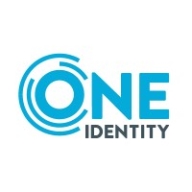

One Identity Active Roles and IBM Security Identity Governance and Intelligence are identity management solutions. One Identity Active Roles offers competitive pricing and strong customer support, while IBM Security Identity Governance and Intelligence provides a comprehensive feature set.
Features: One Identity Active Roles is recognized for its automation, ease of management, and integration capabilities, which streamline identity administration tasks and reduce manual efforts. IBM Security Identity Governance and Intelligence offers advanced analytical capabilities and a risk management framework, including insights into identity-related risks.
Ease of Deployment and Customer Service: One Identity Active Roles simplifies deployment, making it suitable for organizations with limited IT resources, and provides responsive customer service. IBM Security Identity Governance and Intelligence requires more resources for deployment but offers various configurations. Its customer support is considered average.
Pricing and ROI: One Identity Active Roles is known for lower setup costs and favorable ROI, appealing to cost-conscious organizations. IBM Security Identity Governance and Intelligence involves a higher initial investment but provides long-term benefits and advanced capabilities, suitable for those focusing on security and governance features.
| Product | Market Share (%) |
|---|---|
| One Identity Active Roles | 5.3% |
| IBM Security Identity Governance and Intelligence | 1.9% |
| Other | 92.8% |


| Company Size | Count |
|---|---|
| Small Business | 7 |
| Midsize Enterprise | 2 |
| Large Enterprise | 17 |
IBM Security Identity Governance and Intelligence (IGI) delivers a business-centric approach to Identity Management and Governance. It empowers business and IT to work together to meet regulatory compliance and security goals across enterprise applications and data. IGI covers enterprise user lifecycle management, access risk assessment and mitigation, certification, password management as well as powerful analytics and reporting to enable business to make the right decisions on enterprise access.
One Identity Active Roles is a highly regarded solution for Active Directory (AD) security and account management. One Identity Active Roles will enhance group, account, and directory management while eradicating the need for manual processes. The end result is a significant increase in the overall speed, efficiency, and security of the organization.
Using One Identity Active Roles, users can:
Managing accounts in AD and Azure AD can be tremendously challenging; continually keeping these important systems safe and secure presents an even greater challenge. Traditional tools can be inefficient, error-prone, and very disjointed. In today’s robust marketplace, organizations are finding it somewhat difficult to keep pace with the constant access changes in a hybrid AD ecosystem. Additionally, there are significant security issues to consider (government compliance, employee status/access changes, and other confidential business requirements). And, of course, there is a requirement to properly manage Active Directory and Azure Active Directory access in addition to managing all the other numerous SaaS and non-Windows applications that organizations use today.
Users can easily automate all of these tedious, mundane administrative tasks, keeping their systems safe and error-free. Active Roles ensures users can perform their job responsibilities more effectively, more efficiently, and with minimal manual intervention. Active Roles was created with a flexible design, so organizations can easily scale to meet your organizational needs, today, tomorrow, and in the foreseeable future.
Reviews from Real Users
A PeerSpot user who is a Network Analyst at a government tells us, “It has eliminated admin tasks that were bogging down our IT department. Before we started using Active Roles, if one of our frontline staff members deleted a user or group, it could take several hours to try to reverse that mistake. Whereas now, the most our frontline staff can do is a deprovision, which just disables everything in the background, but it's still there. We can go in and have it back the way it was two minutes later. Instead of it taking two hours, it only takes two minutes.”
Becky P., Sr Business Analyst at George Washington University, shares, “In addition, with the use of workflows and the scheduled tasks, we were able to automate and centrally manage a number of the processes as well as utilize them to work around other product limitations. Those include, but are not limited to syncing larger groups, which have 50,000 plus members, to Azure AD. We sync up to Azure AD using ARS. If we had not already had ARS in place, it would have been impossible for us to have done so in the time period we did it in. We did it in under six months. ARS probably saves us at least two weeks out of every month. It's reduced our workload by 50 percent, easily.”
We monitor all User Provisioning Software reviews to prevent fraudulent reviews and keep review quality high. We do not post reviews by company employees or direct competitors. We validate each review for authenticity via cross-reference with LinkedIn, and personal follow-up with the reviewer when necessary.